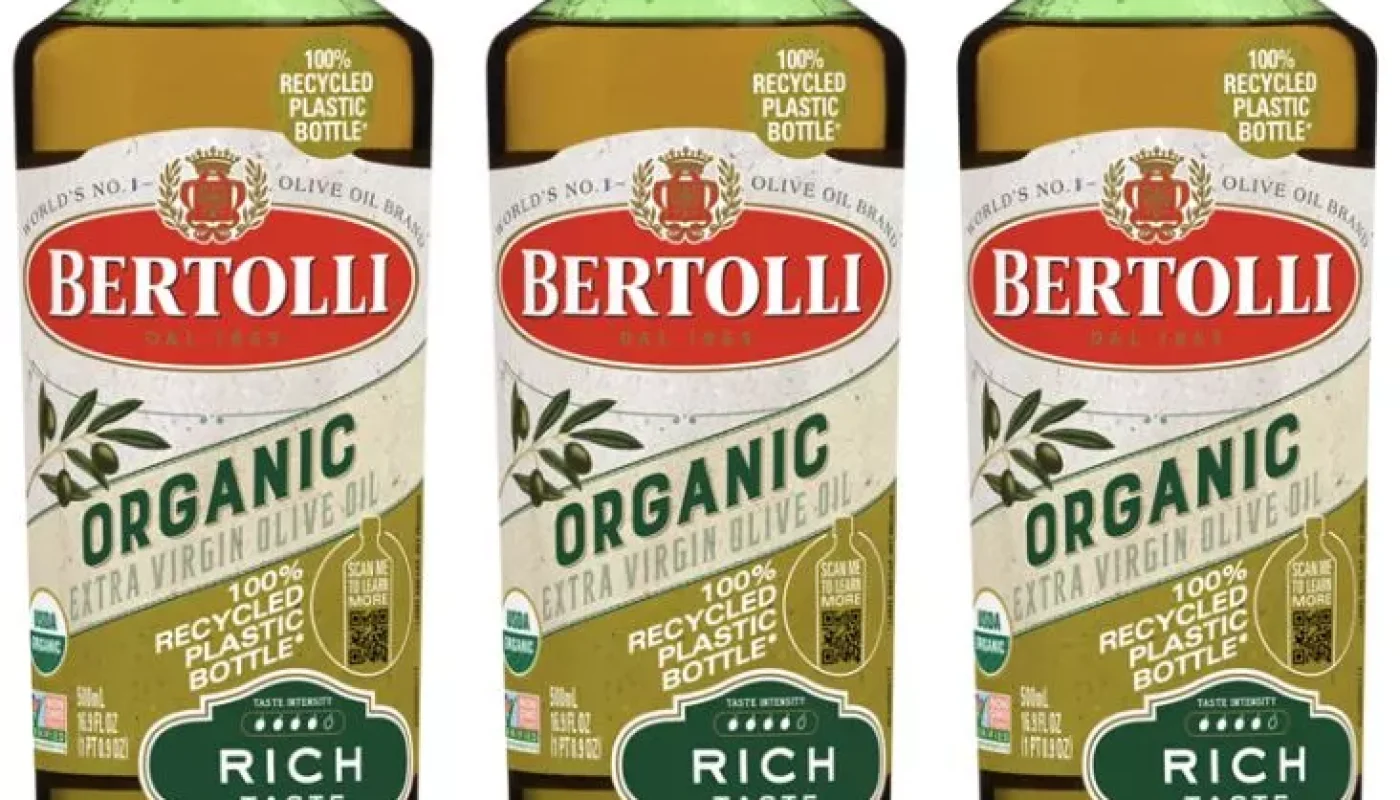Bertolli in the US

Indice
Bertolli in the US Launches rPET Olive Oil Bottles
Bertolli, a prominent food manufacturer, is introducing a new olive oil packaging solution in the United States. The company is now using bottles made from 100% recycled PET (rPET), a move aimed at reducing the use of virgin plastic and minimizing its environmental footprint. The new rPET bottles are part of a broader sustainability strategy for Bertolli in the US, which includes commitments to reduce carbon emissions and encourage suppliers to improve their own environmental performance.
The process for creating these bottles involves collecting used plastics, sorting them by polymer type and color, washing them thoroughly, and then processing them into PET flakes, which are then used to create the new packaging. This circular approach is a key component of Bertolli’s sustainability efforts. While the company is making this change, it acknowledges a challenge: the availability of suitable recycling facilities varies by region. Therefore, the packaging includes a clear note prompting consumers to check local recycling guidelines.
As part of this launch, Bertolli in the US also introduced its new “Bertolli Extra Virgin Olive Oil Dress & Drizz” product in the rPET bottle. According to the company, this is the only product of its kind on the market, featuring a design that provides a comfortable grip and a precision-dosing cap for better control. This innovative product and its sustainable packaging align with the company’s commitment to both quality and environmental responsibility.
Sustainability Goals and Regulatory Alignment
The introduction of rPET bottles by Bertolli in the US is a significant step in the company’s journey toward a more sustainable future. Its long-term sustainability roadmap includes ambitious goals such as reducing carbon emissions, minimizing packaging impact, and maintaining “Zero Waste” certification at its facilities by 2030. The company has already made progress toward these goals; since 2022, all its production plants have been powered entirely by renewable energy sources. This proactive approach highlights Bertolli’s dedication to its environmental commitments beyond just its packaging.
This new packaging initiative also aligns with a growing regulatory push in the US toward increased recycling and the use of recycled materials. The U.S. Environmental Protection Agency (EPA) has set a goal to achieve a 50% recycling rate by 2030. Furthermore, state-level regulations, such as California’s AB793, are setting new standards for recycled content in plastic bottles. This regulation mandates a minimum of 15% recycled material today, with plans to increase that to 25% by 2025 and 50% by 2030. By adopting 100% rPET, Bertolli in the US is not only meeting these emerging standards but also positioning itself as a leader in the industry.
The decision to use rPET bottles reflects a strategic effort to meet both consumer demand for more sustainable products and the evolving regulatory landscape. The company’s transparent communication about recycling availability and its commitment to reducing its overall environmental footprint underscore a comprehensive approach to corporate responsibility. This move by Bertolli in the US could set a new standard for the olive oil industry and encourage other companies to follow suit in their own sustainability efforts. The success of this initiative will depend on consumer adoption and the expansion of recycling infrastructure, but it represents a promising step forward for the brand.
Important Note: oliveoilextra.com promotes the consumption of extra virgin olive oil for its culinary qualities and health benefits. However, it should not replace any current medication or treatment without the guidance of a healthcare professional.
